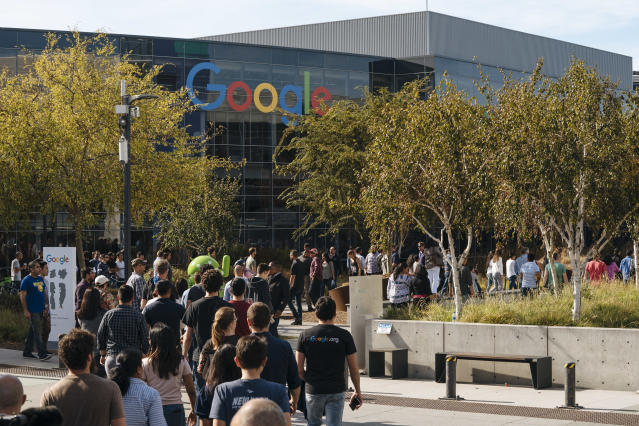The US National Labor Relations Board (NLRB) is expanding its complaint against Google to include three additional former employees of the company, according to Recode. When the agency first accused the search giant of illegally firing some of its workers for organizing, it took up the cases of two individuals.
Recode reports the NLRB added Paul Duke, Rebecca Rivers and Sophie Waldman to the complaint. Those former employees allege Google fired them for protesting work it was doing with US Customs and Border Protection (CBP) in 2019. That summer, the three of them helped write a petition calling on Google to commit to not supporting CBP and other related agencies like US Immigration and Customs Enforcement (ICE). Approximately 1,500 employees ended up signing that document.
When Engadget reached out to the NLRB for confirmation of the change, the board pointed us to a summary of the case, which notes the complaint was amended on June 9th, 2021. Meanwhile, Google reiterated that it dismissed the former employees involved in the case for violating its data security policies, an allegation those individuals deny.
“We strongly support the rights our employees have in the workplace, but we also have a strong interest in maintaining and enforcing our data security policies, which in this case were intentionally and repeatedly violated,” a spokesperson for the company told Engadget. “Our thorough investigation found the individuals were involved in systematic searches for other employees’ materials and work, including distributing confidential business and client information. As the hearing on these matters moves forward, we’re very confident in our decision and legal position.”
Under the Trump administration, the NLRB said it wouldn’t take on the cases of Duke, Rivers and Waldman. But this past May, a report from Bloomberg said the agency had reconsidered that decision under Peter Ohr, its current acting general counsel. As Recode points out, Ohr recently said in a public memo he believes some “political and social justice advocacy” is protected under current labor laws. An administrative judge will hear the case between Google and its former employees in August. The decision could have far-reaching consequences related to how tech workers in the US organize.





